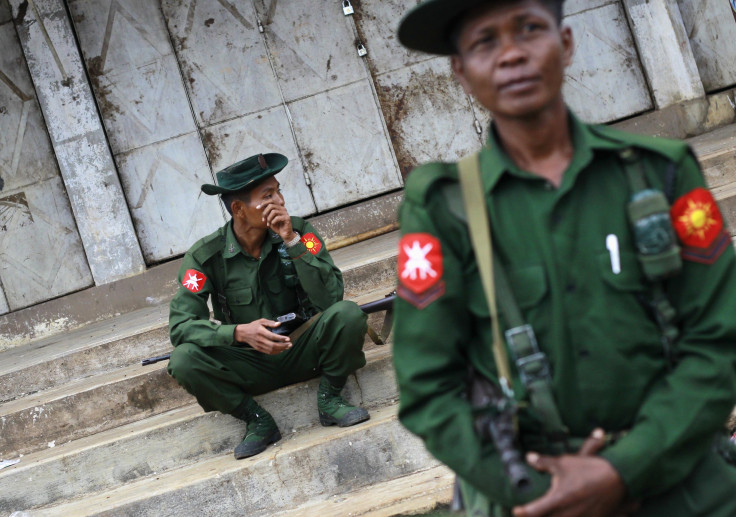US To Increase Military Engagement With Myanmar Military With Focus On Humanitarian Issues

The United States and Myanmar will increase military engagement later this month, as part of Washington’s efforts to encourage the Myanmar Armed Forces, officially known as the Tatmadaw, to transform into a professional security force with civilian oversight.
The plans were announced by U.S. Ambassador Derek Mitchell on Aug. 1 in Yangon, alongside the U.S. Deputy National Security Advisor for Strategic Communications Ben Rhodes, who was in Myanmar on a three-day visit. Mitchell said that the initial engagement would focus on humanitarian issues, officer professionalization and human rights, according to the Myanmar Times.
“This is an absolutely critical institution in the country and has been for 50 years,” Mitchell said of the Tatmadaw. “We need to establish a regular dialogue, we need to get new ideas into that institution because they have been operating on old ideas that haven’t seemed to work very well for the country.”
The engagement will be undertaken by the Defense Institute for International Legal Studies, a group of military lawyers based in Rhode Island that works for the U.S. Department of Defense. The group recently concluded a preliminary trip to Myanmar, a visit that was enthusiastically welcomed by Tatmadaw leaders, according to Mitchell.
The cooperation between the two militaries will be contingent on the continuation of the reform process undertaken by the Myanmar government under President U Hein Sein, Mitchell added, and that the U.S. was “not even close” to arms sales or operational training of Myanmar troops. There is no definitive “road map” for military-to-military activities.
The view was echoed by Rhodes, who is a close adviser to President Barack Obama and accompanied the president to Yangon in November 2012, the Myanmar Times reported.
“We are not going to be able to see a deepening of that [military] engagement unless we see a continued progress on reform and … a permanent change made in terms of an inclusive democratic society,” Rhodes said.
Aside from improving professionalism, Washington wants to encourage the Tatmadaw to relinquish its hold on 25 percent of the seats in the Myanmar parliament.
U.S. policy towards the Southeast Asian nation has largely skirted the military until now, focusing instead on development aid and furthering economic ties, following the country’s reforms and the lifting of western sanctions. However, a defense attaché has always been maintained at the U.S. embassy, and Mitchell holds regular talks with Myanmar leaders as part of what the embassy calls an “ongoing discussion” about possible military cooperation.
The move toward military cooperation follows the United Kingdom’s decision in early June to send a team of experts to study how British military can aid Myanmar. The U.S. has also made clear its intention to target those members of the military it believes are deviating from its perceived path to reform, according to the Myanmar Times.
The military regime, which has ruled the country since 1962 following a coup d’état, was dissolved in 2011 and gave way to the current reform government. However, the military continues to wield considerable influence in Myanmar, politically and economically.
Myanmar occupies a strategically important location in Southeast Asia. The country borders China, India, Bangladesh, Thailand and Laos.
© Copyright IBTimes 2024. All rights reserved.




















